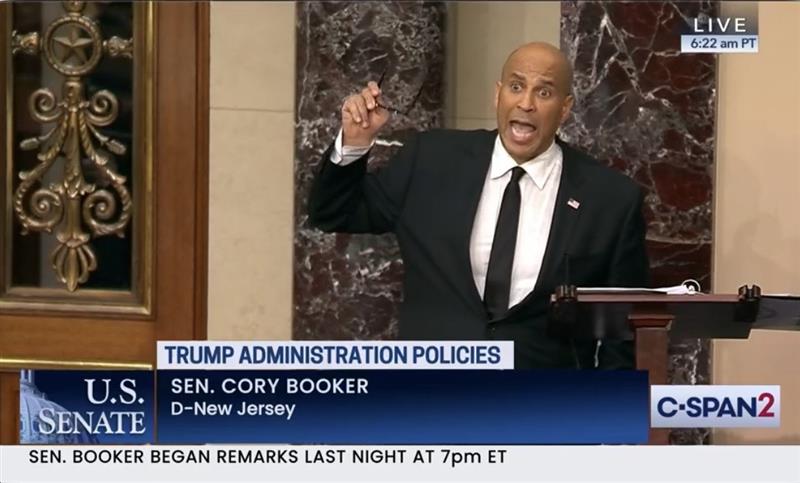Student In Standoff With Texas School District After Suspension Over Locs
The great hair debate continues.

Texas high school student Darryl George and his family are in the middle of a legal battle — that might further prolong his absence from classes — after he was disciplined by his school for refusing to cut his locs.
George, a Black student, argued that his hairstyle did not violate any rules. His family has filed lawsuits alleging that his punishment violates the recently passed CROWN Act that became law in Texas in September. The act prevents schools from discriminating against hairstyles based on hair texture and styles, such as braids, dreadlocks, or Bantu knots, among other styles. It prohibits race-based hair discrimination in schools. The school district’s attorneys have argued that students do not have a federally protected right to wear their preferred hairstyle at school.
George was first removed from the classroom in August because his locs were said to be below his eyebrows and earlobes, which was in violation of the district’s dress code.
After being placed in an offsite disciplinary program for over a month, the news outlet reported that George recently returned to in-school suspension. His attorney, Allie Booker, worries the result may be the student’s expulsion. Booker says George is “not going to break” and refuses to cut his hair but remains in disbelief about the experience.
During a court hearing on Dec. 13, Barbers Hill School District attorney Jonathan Brush said the district has always had hair restrictions for male students. However, “locs have always been permitted.”
George’s family has filed a formal complaint with the Texas Education Agency. A federal civil rights lawsuit against Gov. Abbott, Attorney General Paxton, and the school district are also in motion. The lawsuit was filed because the family alleged that the people in the suit did not enforce the CROWN Act.
The lawsuit is before Federal Judge Eskridge. An additional suit has been filed by the school district, asking for clarification by the judge to determine whether their policies violate the CROWN Act. This case is now in the hands of a federal judge in Houston because of a motion filed by George’s attorney.
The legal case remains at a standstill, with various motions awaiting a ruling by the federal judge. Booker cannot file for an injunction to halt George’s punishment until Eskridge rules on the other motions.
Meanwhile, George remains separated from regular classes all because of his locs. Advocates such as Jaleesa Reed, a professor at Cornell University with a research focus on beauty, culture, and identity, argue that attempts to control Black hair expression show the need for the CROWN Act at the federal level. Reed believes some efforts to control Black hair expression are made through policies such as the ones enacted by the Barbers Hill School District. The professor said, “Rather than punishing students, providing opportunities to learn more about cultural hairstyles could enrich the learning environment and foster acceptance of differences.”
Despite multiple lawsuits and allegations of discrimination, the standoff over his locs continues. William Sherman, a Washington D.C. attorney and legal strategist for the CROWN Act, said that George’s hairstyle, which does not “fit the Eurocentric ideal of neat and clean,” has led to him being “denied” an education.












